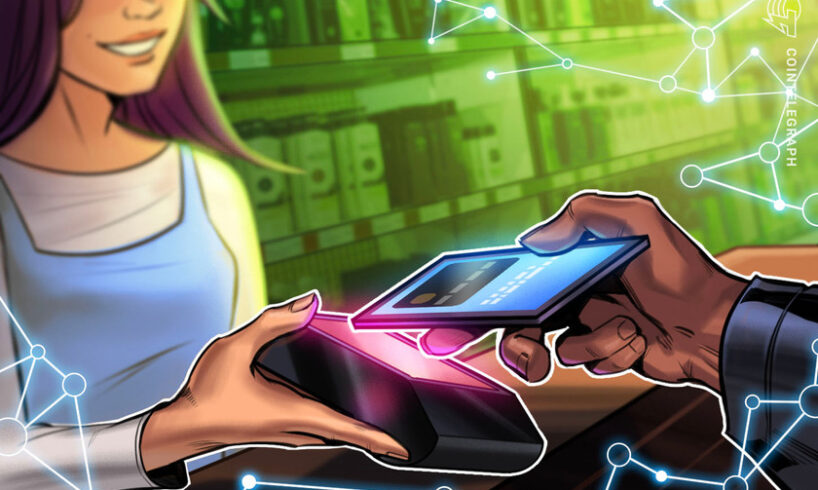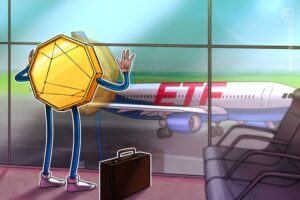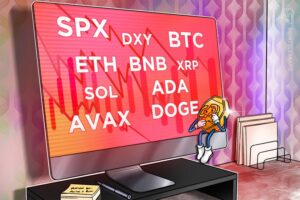
The Lightning Network (LN) just got a bit faster, as the suitably named Bolt Card now enables Bitcoin (BTC) enthusiasts to pay for goods and services using contactless technology.
A data analyst at the company behind the card, CoinCorner, took the Bolt card on a trial run on the Isle of Man, a British Crown dependency in the Irish Sea. “MSW” — as he is known — tapped to pay at more eight point-of-sale (PoS) devices during his lunchtime investigation.
It worked like this: for any PoS device showing a Lightning invoice, MSW simply hovered the NFC enabled Bolt Card nearby. In total, MSW 20 paid for 20 breakfasts, lunches, drinks and snacks using the LN prior to the Bolt Card’s release:
⚡️#LightningLunch – Day 16⚡️
Prawn noodles, mango lassi
Street Kitchen
Price: 44,634 丰 (£11.50)
Notes: Magnificent as always, but pretty spicy
Pro-tip: Take your lunch break early to save sats !
Total spent: 413,107 丰 / £123.30
Current value: £110.06 pic.twitter.com/EA8Dgx6qoI
— CoinCornerMSW (@CoinCornerMSW) May 9, 2022
MSW told Cointelegraph that using the Bolt Card “felt completely natural and worked just as you would expect!”
“For me, it is a huge step up in terms of user experience when compared to scanning QR codes. A bonus for me was getting to know some of the local businesses around the Isle of Man and watching how they have embraced the Bolt Card.”
A data analyst to the core, MSW also documented the comparative cost of parting with Satoshis, (the smallest denomination of a Bitcoin), versus paying for refreshments with pounds sterling, the Isle of Man’s currency. In light of the recent bear market price action, the pound value is marginally higher.
MSW’s graph of his Lightning Lunches. The value of Sats spent (blue) is higher than pounds spent (yellow). Source: Twitter
A layer two technology built on Bitcoin, the LN is ideal for instant payments and micropayments. However, prior to the Bolt Card, shoppers from El Salvador to the Isle of Man would pay over the LN by scanning a QR code.
For Danny Scott, CEO of CoinCorner, this is “not as efficient and user-friendly as we need it to be for a mass audience.” Payment with QR codes is lengthy and awkward:
“It still involves unlocking a phone, opening an app, scanning a QR code and then making the transaction. This is a backwards step when it comes to user experience in comparison to what we’re used to today for in-person payments.”
In true Bitcoiner style, the Bolt Card is interoperable with industry protocols including Lightning and LNURL. Scott emphasizes that they “will explore other concepts around how to make The Bolt Card, and the user experience for all Lightning use cases, better.”
In all, the Lightning Network continues to grow, from large payment integrations such as Cash App down to grassroots movements and individuals making micropayments.
Related: Rising global adoption positions crypto perfectly for use in retail
The Bolt Card is another Bitcoin payment innovation, “real products for the real world,” says Scott. Ultimately, it furthers the path toward “hyperbitcoinization.”
The progress in payments flies in the face of FTX CEO Sam Bankman-Fried’s recent comments, who got into hot water for suggesting he sees “no future” in Bitcoin payments.















